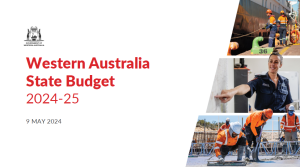WACOSS welcomes the opportunity to make a submission to the Economic Regulation Authority on the draft decision for the 2023 Review of the Gas Customer Licence Obligations (Compendium).
Aligning the Compendium with the Electricity Code
It is critically important that gas customers can expect and receive the same level of protections as electricity customers are provided under the Code of Conduct for the Supply of Electricity to Small Use Customers (Electricity Code). The findings of the WACOSS and Bankwest Curtin Economics Centre Understanding Utility Hardship Report made clear that in order for consumers to receive the level of assistance that they require, it is essential that this is embedded into the customer protections frameworks like the Compendium.[1]
Financial counsellors were asked to reflect upon the difference between utility hardship programs, for example between water, electricity or gas, and how they compare to one another. They noted a distinction between publicly-owned and privately-owned utility companies and how they differed in services offered and approach to customers in hardship. The publicly-owned utilities in water and electricity went beyond the minimum support that was required under the Customer Codes, while the gas companies did not.
Financial counsellors highlighted how publicly-owned utilities, such as water and electricity, often reduce the amount of the outstanding debt for a hardship customer if they maintain a payment plan. They also engage in case management techniques where cases are assessed on an individual basis by a dedicated case manager. Counsellors also noted that Water Corporation and Synergy have developed a strong relationship with the financial counselling sector, enabling them to adjust and tailor their hardship programs and approaches with clients.
Financial counsellors noted how privately-owned utilities, such as gas companies, may offer alternate payment options such as bill smoothing, but often do not offer other forms of financial incentives, such as debt waivers or matched payments to support customers in hardship.
“I can’t say that I’ve seen an example of a stellar hardship program from any of the gas companies.”
“I think Water Corp and Synergy get top marks from me. I guess they can do it because they are connected to the government. Whereas I try to ask [gas company] or some of the other providers if they will be as good, and they reply that they’re a business.”
– Interviews with Financial Counsellors, Understanding Utility Hardship Report
The most recent review of the Electricity Code resulted in a number of significant changes that increased the protections for electricity customers. To ensure that gas customers receive the same level of protections and assistance from their gas retailers, it is critical that these changes are replicated in the Compendium where possible.
Protections relating to family violence
Essential services can be used as a form of economic or financial abuse to coerce and cause harm to victim-survivors, due to the critical function essential services play in daily life. Financial abuse can be used to keep a partner or family member trapped in an abusive relationship and may also impact on that person’s ability to stay safe once they leave the relationship. As essential service providers, gas retailers have an important role to play in protecting customers’ account information, privacy and personal security and supporting customers and employees affected by family violence.
WACOSS strongly supports the proposed changes to the Compendium to align it with the new protections that have been introduced into the Electricity Code. It is critical to addressing family violence that retailers be required to have a family violence policy and new standards of conduct to boost protections for customers, with better training for staff, improved account security and debt management practices, and safe communication methods for those affected by family and domestic violence.
Fear and shame can act as a significant discouragement in seeking assistance, with requests for evidence signalling to a victim-survivor that the retailer does not trust what they are telling them. Requesting evidence can deter customers from reaching out for support and create considerable barriers in accessing assistance. As such, it is highly appropriate to include provisions prohibiting retailers from requesting written evidence of family violence, except where a retailer is considering taking debt recovery or disconnection actions, and the evidence is reasonably necessary to assess what measures to take.
WACOSS also strongly supports the introduction of a nine-month prohibition on disconnecting customers affected by family violence, mirroring the reform of the Electricity Code. The severity of the impacts of disconnection, combined with the severity of impacts of family and domestic violence, may undermine a person’s safety, mental and physical health, and their economic and emotional wellbeing. Customers affected by family violence often find it difficult to maintain engagement with services. Prohibiting disconnections for nine-months ensures customers affected by family violence are able to maintain their access to gas services.
Variations to contracts
WACOSS supports the adoption of the same provisions from the Electricity Code into the Compendium relating to the variation of standard form contracts. The Compendium’s protections provide an important minimum safety net for customers. While contractual flexibility may provide some benefits to both customers and retailers, WACOSS believes that it is important for the standard form contract to provide access to the set of safeguards that form that safety net, which cannot be contracted out of or varied.
Payment difficulties and financial hardship
Assistance available to all residential customers
WACOSS supports amending the Compendium to require retailers to offer payment plans, payment extensions or other arrangements to all residential customers. By establishing an unambiguous entitlement to assistance for all residential customers, it is possible to better assist customers to not enter arrears by enabling them to take early action to manage their payments, while also ensuring that no customer is denied assistance. By ensuring that this is an explicit entitlement for all customers, it is possible to shift stigma associated with reaching out to access particular forms of support and encourage more proactive engagement between customers and retailers.
Assessments
WACOSS supports amending the Compendium to require a retailer to assess a customer for payment difficulties or financial hardship within five days, and to enable a previous assessment to be considered if the customer’s circumstances have not changed.
Instalment plans
Amendments to the Electricity Code have provided greater protections for customers who are establishing or have established an instalment plan with their retailer. These are essential changes that should be made to the Compendium. Requiring that retailers must consider any outstanding debts of the customer, alongside their capacity to pay and consumption history, is critical to the success of an instalment plan arrangement.
Further, effective, transparent communication from the retailer to the customer should be the touchstone for any instalment plan. Achieving the greatest success when providing different arrangements and assistance such as instalment plans necessitates taking a customer empowerment approach.[2] Enabling consumers to exercise greater choice when determining what payment arrangements best suit their circumstances can improve engagement between customers and retailers. This requires retailers to be willing to tailor their responses to meet the different circumstances and repayment capacity of individual consumers, as well as trusting what their customers tell them.
“The best ways to help a client exit hardship, is when we are able to keep the client as the expert in their own journey, and they can determine what will work best for them.”
– Interview with a Financial Counsellor, Understanding Utility Hardship Report
This necessitates that customers are involved in setting and varying their payment plans. As such, WACOSS supports amending the Compendium so that a retailer cannot vary a payment plan without obtaining the customer’s consent. As with the Electricity Code, it is appropriate that a retailer should be obligated to review a payment plan at the request of a residential customer and that customer must be provided with the agreed payment plan terms in writing, along with information on what the customer must do if they cannot comply with the plan.
Disconnection
WACOSS strongly supports introducing a $300 minimum debt disconnection threshold into the Compendium, as has been introduced into the Electricity Code. Setting a minimum debt disconnection threshold of this nature is critical in ensuring that disconnection is only undertaken as a measure of last resort. WACOSS considers $300 to be an appropriate level at which to set the threshold, with gas customers unable to quality for a Hardship Utilities Grant Scheme grant unless their outstanding bill is greater than $300.
Information and communication
Providing notice of tariff variations to customers
WACOSS supports amending the Compendium to align with the Electricity Code by requiring retailers to provide at least five business days’ notice where there is a variation to non-regulated tariffs, fees or charges. WACOSS considers that it would be appropriate to also provide this amount of notice in the case of regulated tariffs where changes occur due to circumstances beyond the retailer’s control. While that extra notice may not be necessary to enable customers to explore other tariffs, providing greater notice better assists customers to budget where necessary in order to cover this price change. As such, greater notice can assist customers avoid falling behind on their bills or into financial difficulty.
Electricity Code amendments not proposed for the Compendium
WACOSS supports retaining the provisions in the Compendium relating to bill smoothing. As a payment arrangement product that is provided by a number of gas retailers, it is critical that the existing protections under the Compendium are maintained.
Other substantive matters
Prepayment meters
WACOSS supports removing the references to prepayment meters from the Compendium on the basis that there no gas prepayment meters currently utilised in Western Australia and that the existing references provided no substantial protections. Should there be a proposal to introduce gas prepayment meters in the future, WACOSS trusts that amendments to the Compendium would be made swiftly to ensure appropriate protections were in place.
Paper billing charges
WACOSS considers that customers should be able to choose between receiving a paper bill or electronic bill, and that those who choose to receive a paper bill should not be charged a fee for doing so. Western Australians have diverse levels of general and digital literacy and experience using digital technologies and the internet. Some older Western Australians who engaged with digital technologies later in life or people with certain disabilities, for example, may need considerable support to use these technologies and digitally-enabled services.
People on low incomes are significantly impacted by the affordability of access to digital technologies and internet services. One in four Western Australian households in the lowest income quintile do not have access to the internet, compared to almost universal access for the highest quintile. [3] Although improving in some areas, there also remain ongoing barriers to accessing digital technologies and affordable, reliable internet access or mobile network coverage in regional and remote communities across Australia. It is a critical equity measure, therefore, to ensure that customers can choose instead to access paper bills without being charged.
Providing the basis for an estimate
WACOSS agrees that, on request, a retailer should provide the reason and basis for an estimate within a timeframe. A timeframe is necessary to provide certainty for the customer, as well as to guarantee that they are provided the requested information within a timely manner. WACOSS considers that whatever timeframe is determined, it should be short, as the reason and basis for an estimate should be information readily available to a retailer.
For any enquiries about this submission please contact Graham Hansen, Senior Policy Officer, [email protected], 08 6381 5300.
References
[1] Graham Hansen, Eva Perroni and Dr Silvia Salazar, Understanding Utility Hardship, Western Australian Council of Social Service and Bankwest Curtin Economics Centre (Report, 2022).
[2] Ibid.
[3] Steven Bond-Smith et al, Falling Through the Net: The Digital Divide in Western Australia, Bankwest Curtin Economics Centre (Focus on Western Australia Report Series No. 11, 2018).




